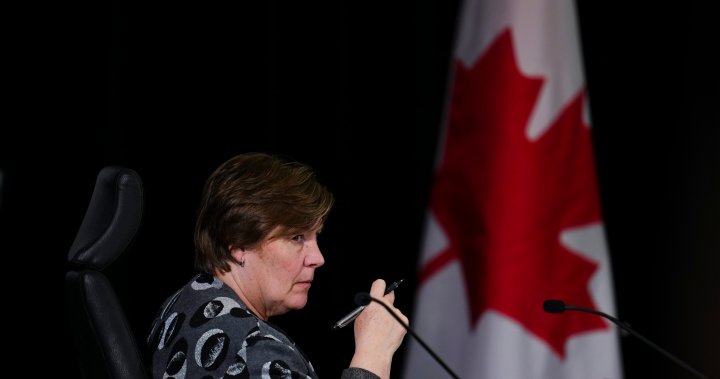Justice Marie-Josée Hogue is set to deliver her preliminary report into foreign election interference in Canada’s democratic institutions, primarily by China, in the 2019 and 2021 federal elections. The inquiry, which began on Jan. 29, has heard from roughly 70 witnesses, including members of diaspora communities, intelligence officials, senior bureaucrats, and Prime Minister Justin Trudeau. The commission also reviewed classified intelligence reports and summaries, as well as interviews with key players in the government and intelligence communities. China has been identified as the most significant threat, with the Canadian Security Intelligence Service highlighting Beijing’s sophisticated and persistent attempts to influence the democratic process.
The focus of Justice Hogue’s findings will be on the integrity of the last two federal elections and the flow of information to senior decision makers and elected officials. A CSIS assessment pointed out that state actors have been able to conduct foreign interference successfully in Canada due to few legal or political consequences, making it a low-risk and high-reward endeavor. Despite calls from opposition parties and MPs like Erin O’Toole, Michael Chong, and Jenny Kwan, the Liberals initially resisted holding a public inquiry. Instead, former governor general David Johnston was appointed to examine the issue as a “special rapporteur.” His preliminary report, released in early 2023, recommended against a public inquiry, leading to criticism from opposition parties and continued calls for one. Ultimately, Prime Minister Trudeau called for a public inquiry in September 2023 and appointed Justice Hogue to lead the commission.
Justice Hogue and her team faced a tight timeline to interview witnesses, review government documents, and conclude weeks of public testimony. Despite the challenges, the commissioner is expected to deliver her final report on foreign election interference on December 31. The inquiry has uncovered China’s significant, clandestine, and deceptive interference in Canadian elections and the democratic process, highlighting the need for further investigation and potential consequences for foreign actors involved in such activities. The findings of the inquiry will shed light on the vulnerabilities of Canada’s electoral system and inform future efforts to safeguard against foreign interference in democratic processes. The outcome of Justice Hogue’s report will have far-reaching implications for Canadian national security, foreign relations, and the integrity of the country’s democratic institutions.
The public inquiry into foreign election interference has been a significant undertaking, involving multiple witnesses, classified intelligence reports, and interviews with key government officials. Justice Hogue’s appointment to lead the commission and her subsequent exploration of China’s interference in Canadian elections have brought much-needed attention to the issue. The findings of the inquiry will provide valuable insights into the tactics used by hostile actors to meddle in Canada’s democratic institutions and the extent of their influence. The inquiry has served as a wake-up call to the vulnerabilities in Canada’s electoral system and the urgent need for measures to combat foreign interference in future elections.
The Canadian Security Intelligence Service’s warnings about Beijing’s sophisticated and pervasive attempts to influence the democratic process have highlighted the seriousness of the threat posed by foreign interference. The commission’s examination of the flow of information to decision makers and elected officials will help identify gaps in security measures and areas for improvement. The final report delivered by Justice Hogue is expected to offer recommendations on how Canada can better protect its democratic institutions from external manipulation and ensure the integrity of future elections. The public inquiry has underscored the importance of robust safeguards against foreign interference in the electoral process and the need for swift and decisive action to address security vulnerabilities. As Canada continues to navigate the challenges of safeguarding its democracy, the findings of the inquiry will inform policy decisions and national security strategies in the years to come.


